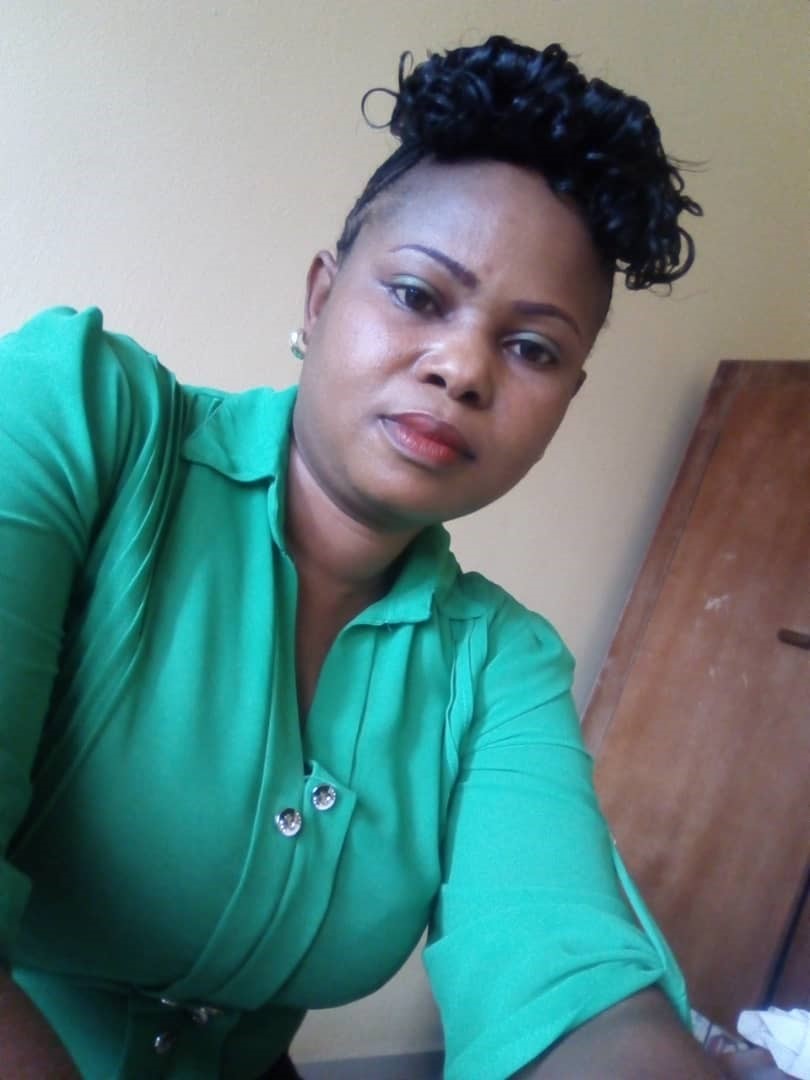Interview with Bridgid James

Bridgid James used her personal resources to fund and conduct a modular training for students at the School of Midwifery in Akwa Ibom using the SHOPS Plus training curriculum. She was interviewed by the SHOPS Plus Nigeria Regional Manager to learn more about what motivated her to conduct this training.
For a copy of the SHOPS Plus Training of Trainers Manual and Provider Training Manual, please email [email protected].
SHOPS Plus: Can you please tell us about yourself?
Bridgid: My name is Bridgid James, and I’m from Akwa Ibom, Obotuka LGA (local government area). I went to the University of Calabar Department of Science and graduated in 2010 as a Registered Nurse Midwife (RNM). I worked for a private hospital for three years as a midwife after I graduated and now I teach FP (family planning), RH (reproductive health), and research at the School of Midwifery as of the last 5 years.
SHOPS Plus: The students at the School of Midwifery, what do they come in with?
Bridgid: The students that attend the school come in with a general nursing certificate (RN) from the School of Nursing where they spent four years. Then they spend another year and a half at the School of Midwifery and when they graduate, they become registered midwives (RM).
SHOPS Plus: Did you attend the SHOPS Plus FP training?
Bridgid: I attended the SHOPS Plus Training of Trainers in Akwa Ibom in place of my colleague who was invited, but was close to retirement and asked me to join instead.
SHOPS Plus: What did you learn from the training that you did not know before?
Bridgid: I learned about counseling and presenting the method mix to the clients, making sure the client has a choice in what method they want. I also learned how to insert and remove implants and IUDs. I have never done gender or provider bias exercises in the past, but now when I talk with my clients I don’t judge them on whether they should or should not ask for FP based on their age. I now know that everyone has the right to access FP.
SHOPS Plus: What was different between this training and how you were initially trained?
Bridgid: The method of training was perfect. The trainers took their time to answer questions, did exercises, and showed video demos. The practicum on site also was a very helpful experience.
SHOPS Plus: What did you decide to do for the modular training and why did you do it?
Bridgid: After being trained, I learned so much that I wanted to kick up our pre-service training materials – I wanted to update the students. I saw some gaps and areas we have not been able to touch in the past and decided to do the training. Also, Ikot Ofon, Ikono LGA is where I did my practicum - I saw during the practicum that there were a lot of people who wanted FP [services], but there was not enough time to help everyone. Many women came out – 12 were attended to and there were still five left at the end of the day. I followed the same agenda as the SHOPS Plus training and picked the topics [modules] that the students did not have the chance to learn with our current curriculum. These topics included: gender and provider bias, Sayana Press, MEC Wheel, infection prevention, balanced counselling, and implant (Jadelle, Implanon) and IUD insertion. Even though we did not do the practicum part of the training, the students are normally posted in hospitals for practicum as part of their training, so I plan on placing them in facilities with FP units to practice very soon.
SHOPS Plus: How big was your class (training) and did you have everything you needed to do the training?
Bridgid: I had 26 students in the training, all women and School of Midwifery students. I was assisted by three other facilitators, including Dr. Nneka, the SHOPS Plus Akwa Ibom state coordinator and another state trainer, Ekayite Ekpo.
SHOPS Plus: If you have to do this training again after SHOPS Plus, where will you get the supplies to do the training again?
Bridgid: I do not think the school will be willing to provide the consumables. I am planning to go visit shops in Uyo where they sell the consumables and check the prices to assess how much it would cost me if I were to provide them. I think the models are the most important things: the school doesn’t have the cervix and arm models because we were not teaching students how to insert IUDs and implants before.
SHOPS Plus: Did they train you on the Audio Job Aids?
Bridgid: Yes, and I have also been receiving the push messages. I also called into the 3-2-1 system and I think it’s very, very useful. Most times you want to listen to topics that you don’t know well and taking the quizzes to know if I have understood them or not is a bonus. Visual aids like videos would be helpful.
SHOPS Plus: Thank you so much for talking to us and thank you for all you are doing.